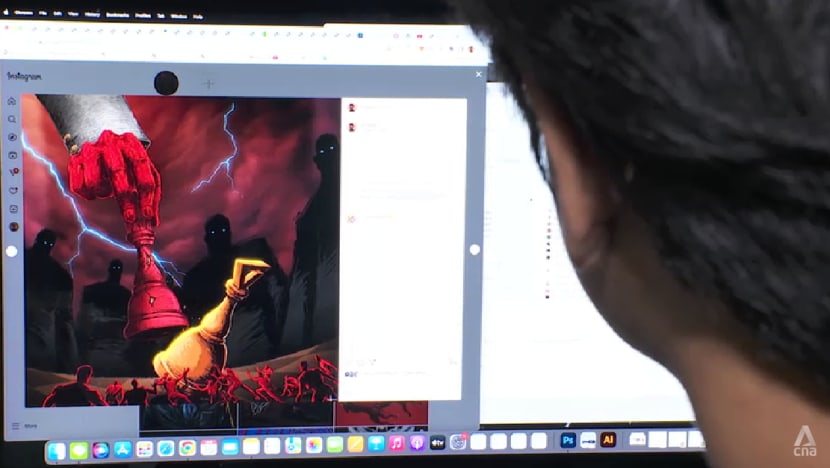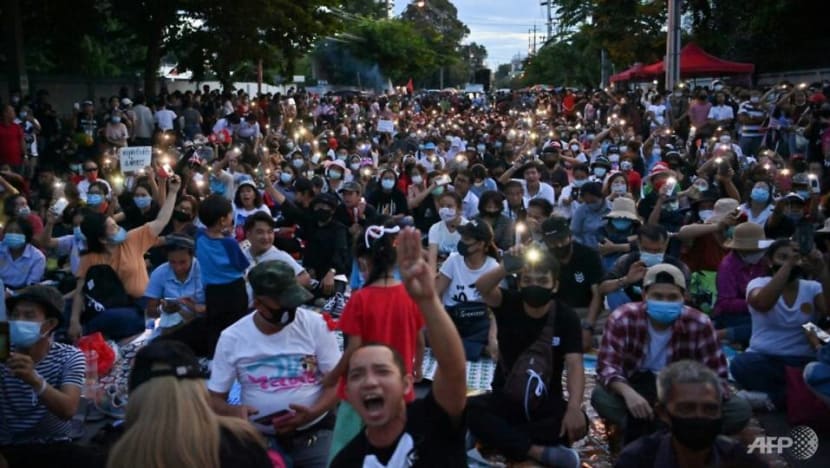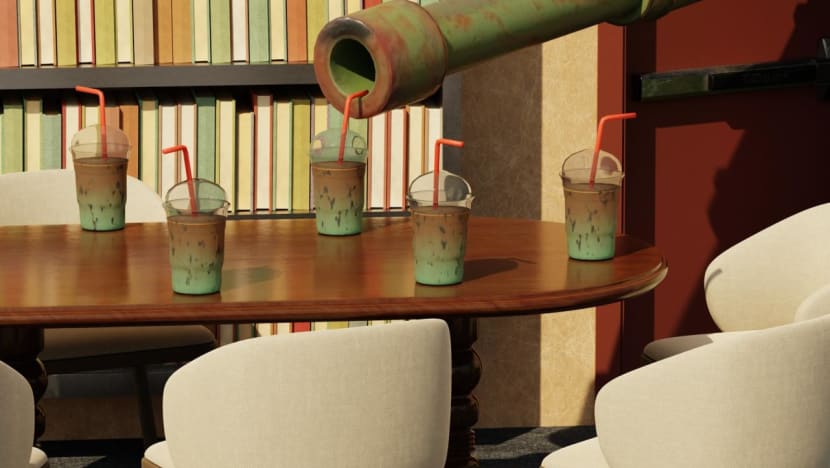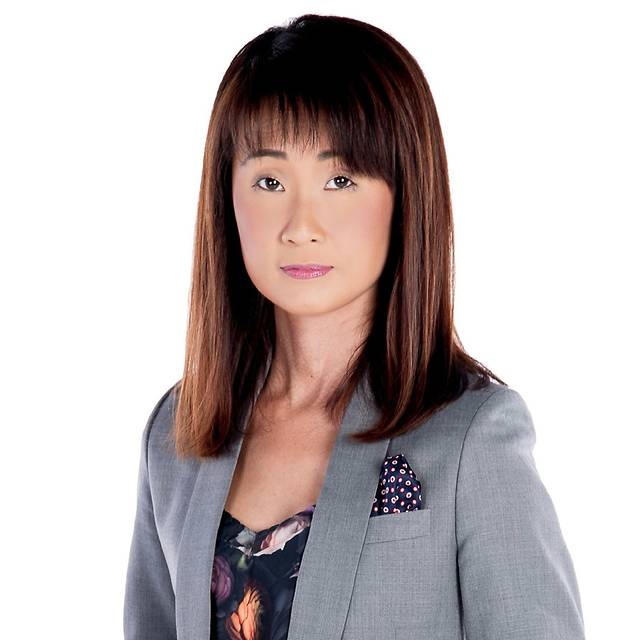‘A way to vent all this angst’: Thailand's creatives turn to art to express discontent about politics
Over the past few years, political satire has frequently been used as an outlet for many who feel authorities are curtailing their right to express themselves.

Over the past few years, political satire has frequently been used as an outlet for many who feel authorities are curtailing their right to express themselves, and it has taken on new forms in the digital age.
BANGKOK: Some Thai creatives are turning to art to express their discontent about the political twists and turns in Thailand.
Over the past few years, political satire has frequently been used as an outlet for many who feel authorities are curtailing their right to express themselves, and it has taken on new forms in the digital age.
For artist Saratta Chuengsatiansup, his Facebook page Uninspired by Current Events allows him a space to put his thoughts into rendered images of ongoing events in his country.
“I want to find a way to vent out all this angst from the whole situation of staying home and reading depressing headlines. So that happened,” said the 31-year-old, who has been churning out political artwork daily for the last two years.
“So the whole one-picture-a-day (content) was born because there’s something new every day to scream about.”
SUPPRESSING POLITICAL DISSENT
At the height of the anti-government protests three years ago, thousands of Thais took to the streets to protest against then-prime minister Prayut Chan-o-cha’s government. They said authorities did not do enough to help Thailand through the COVID-19 pandemic and wanted him to step down.
However, some of the street protesters paid a price for voicing their views.
According to Thai rights organisations, at least 240 people have been arrested for allegedly criticising the monarchy over the past three years.
Critics said the law has been misused to suppress political dissent.

To avoid getting into trouble with the law, some Thais have resorted to other mediums – such as satire – to express their thoughts.
Artists said there is no shortage of political content in the nation for art.
Using 3D imaging, Mr Saratta can create an illustration as quickly as within 15 minutes. His witty images mimicking everyday political issues have been widely shared.
A piece that was particularly well-received shows cups of the chocolate-mint iced concoction associated with the Pheu Thai party alongside a military tank at the same table. The beverage, known to be a favourite of Pheu Thai key member Paetongtarn Shinawatra, has become a symbol of deep political divisions.

The artwork is Mr Saratta’s take on the meeting Pheu Thai leaders had with military-backed parties to form a new government – a pivotal point in the political drama that has gripped the country since it held elections three months ago.
DRAMATIC TWISTS AND TURNS
The election-winning Move Forward Party, which secured the highest number of seats in Thailand’s House of Representatives, eventually made way for its former coalition partner Pheu Thai to lead the formation of a new government, after its progressive leader and prime ministerial candidate Pita Limjaroenrat failed to get parliament's backing.
Last Wednesday (Aug 23), Thailand's new prime minister Srettha Thavisin of the Pheu Thai party took office, leading a controversial alliance that includes pro-military parties.
Mr Saratta uses only a few words to caption his art pieces and never uses specifics such as politicians’ faces or symbols of political parties.
“It doesn’t matter who does it. It matters that what they’re doing is wrong. I try as hard as I can to focus on the action more than the person or the party that’s doing it,” he said.
“Partly because I’m afraid to be prosecuted by the law, and it’s self-censorship in a way, but it’s in a way that makes you find more ways to express your ideas.”
Another artist, who only wanted to be known as “Diamond”, also illustrates Thai politics with few words.
“I don't really put captions or descriptions in my work, because I want people to reflect on the artwork and let it speak back to the audience. And sometimes with different perspectives, different cultures, it could translate in a different kind of way,” said the 29-year-old.
“In my starting years, it was a bit intense in terms of politics in Thailand. So when I did some of my artwork, I had to show them to my lawyer friends, to let them see if this is okay in terms of the law, (will it get me into trouble)?”
One of his illustrations, which depicts military figures pinning people down, was noticed by Myanmar citizens during the coup in their country and shared widely then, as they could identify with the same repression by the military power.
“Social media is a special platform that can bring people to feel angry together. It's kind of like spreading awareness, sparking questions and conversations,” he said.
STARTING CONVERSATIONS ABOUT POLITICS
Such artwork can spark conversations about politics, said Thai residents.
Video editor Nattapong Boonnil said: “It can raise awareness of people in society to talk about politics more, and it can make politics more relatable for the citizens.”
University student Sirapatsorn Thananchai said such art pieces might urge viewers to find more background information or meaning behind them.
Thailand has been using art to highlight political issues for decades. This is not just done with drawings, but through various forms such as music and poetry.
Observers said art evokes a different kind of response to political issues which traditional media such as newspapers and television may not be able to do.
They believe social media has opened up more space for political conversations, and may offer a platform for more political art to be accepted and flourish in Thailand.
“Many artworks are not really about saying things directly. It’s about asking questions,” said Assistant Professor Vichaya Mukdamanee, dean of the Faculty of Painting, Sculpture and Graphic Arts at Silpakorn University.
“It’s about revealing (just part of something) and letting you, the audience, fill in the gap. You're not receiving that kind of communication much in your daily life. So (art) is different.”


















